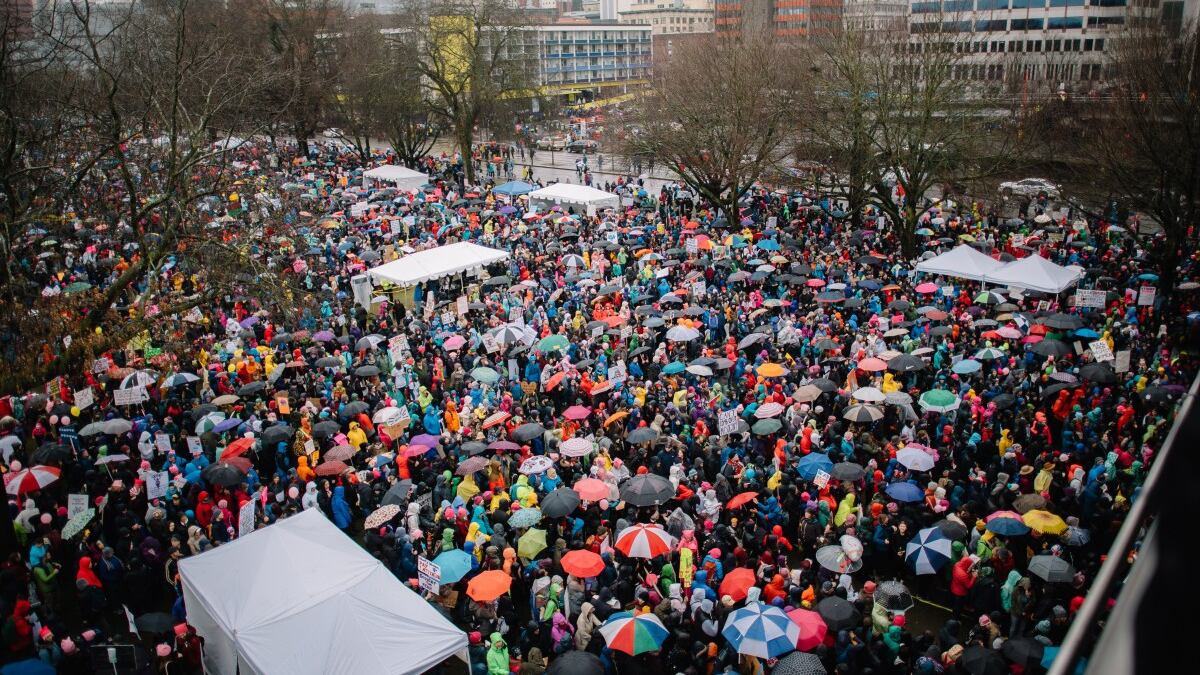In 2017, on the day after President Trump's inauguration, the Women's March on Portland was one of the largest public gatherings in recent civic memory.
Related: "No Hate, No Fear," Declares Crowd of 100,000 at Women's March on Portland
Last year, the event splintered. That was largely due to the Oregon Department of Justice's pending criminal investigation of the organizers over missing funds. It was also precipitated by accusations of racism and fractured relationships in Portland activist circles.
This year, new event organizers are planning a 2019 Womxn's March and Rally. It is not affiliated with the national Women's March—in what local organizers call an attempt to "engage a broader, more inclusive and socially engaged community."
There will also be a new fiscal sponsor, the Portland-based nonprofit Pride Northwest.
"We appreciate what has been created as a community institution of value," a statement from the march's organizers reads. "However, we share the concern of many Portlanders about problematic behaviors and statements from the National Women's March."
The National Women's March has been rent by infighting, primarily over race. National organizers have faced charges of anti-Semitism for their association with Nation of Islam leader Louis Farrakhan. In cities across the country, march organizers have grappled with questions of whether their events exclude women of color.
Portland's 2019 Womxn's March will not happen on the weekend of Jan. 19-20, as it has in years past and will continue to around the nation. Organizers have instead moved the event to coincide with International Women's Day, March 8. An exact date has yet to be announced. (They explained that they changed the date in order to avoid conflict with Martin Luther King Jr. Day, which is Jan. 21.)
Organizers—identified as "a diverse group of womxn working to address the racial, social and economic issues that affect womxn in Portland and womxn everywhere"—also note a concerted effort to highlight marginalized communities in this year's event.
"We cannot and will not ignore the long history of racism in Oregon, nor turn a blind eye to its continued presence," today's statement reads. "We aim to elevate the BiPOC, queer, trans, immigrant and disability activists of our city, and educate those who would be allies on both the need and way to do so."
